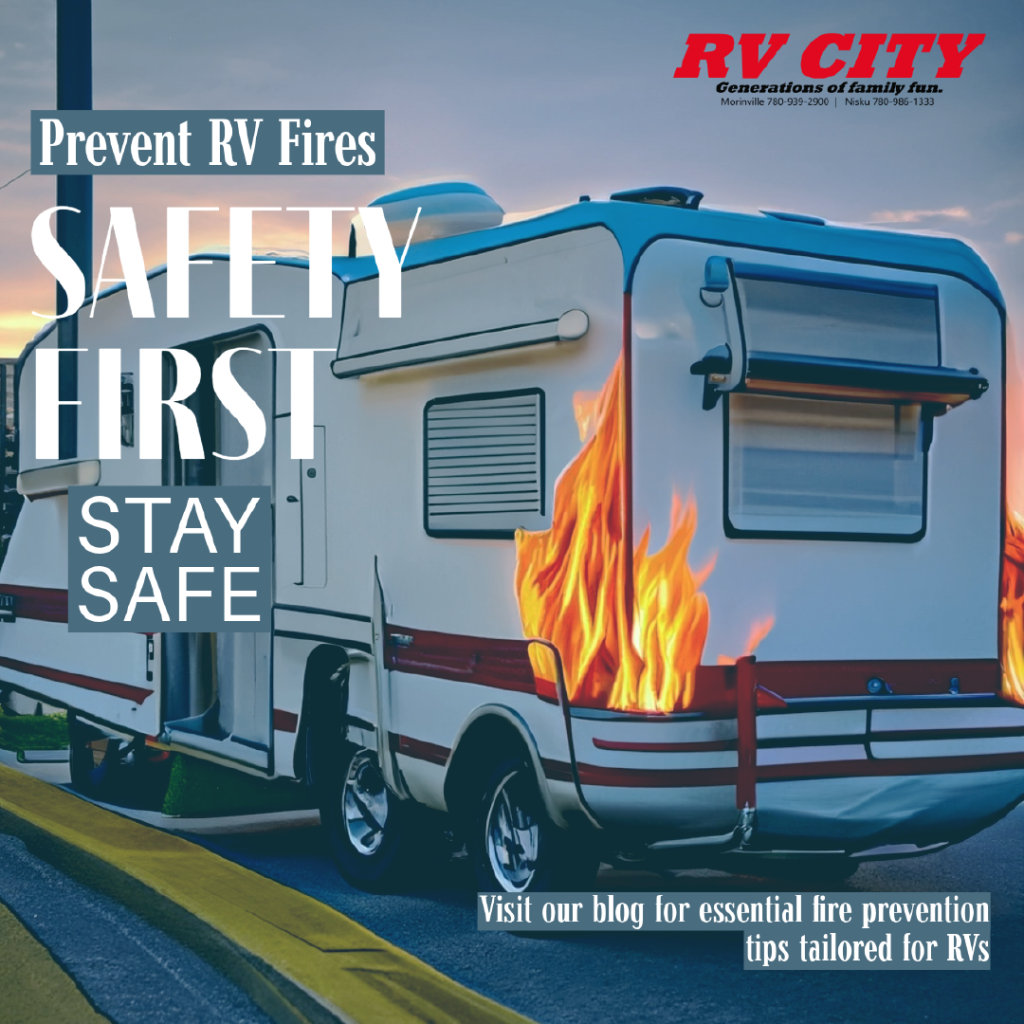Fire Prevention Week is an important time to think about safety, especially for RV owners.

Fire safety is crucial when traveling in an RV due to the confined space and potential fire hazards.
Here are some essential fire prevention tips tailored for RVs:
- Install Smoke and Carbon Monoxide Detectors
Ensure your RV has working smoke alarms and carbon monoxide detectors. Test them regularly and replace batteries at least once a year. - Have a Fire Extinguisher
Keep a Class ABC fire extinguisher accessible inside the RV. Make sure everyone knows how to use it. It’s a good idea to have more than one, such as near the kitchen and sleeping areas. - Maintain Electrical Systems
Inspect wiring regularly for wear or damage. Avoid overloading outlets and always use the correct extension cords for outside connections. RV fires can often start from faulty electrical systems. - Gas Appliances and Propane Safety
Check your propane system for leaks and ensure it’s regularly maintained. Always turn off propane appliances before moving the RV and when refueling.
Make sure the stove and oven are turned off properly after cooking. - Cooking Safety
Don’t leave cooking unattended, especially if you’re using propane or electric stoves. Keep flammable materials, like paper towels or curtains, away from cooking areas. - Space Heaters and Appliances
If you’re using a space heater, make sure it’s designed for indoor use and has an automatic shut-off in case it tips over. Keep heaters away from flammable items like curtains, bedding, or furniture. - Plan an Escape Route
Know the emergency exits in your RV and ensure they are not blocked. Plan and practice an escape route with everyone in the RV in case of fire. - Check for Recalls
Regularly check for RV model recalls related to fire safety issues. Manufacturers often issue recalls for electrical, propane, or other components that may pose a fire hazard. - Keep the Outside Safe
When parking your RV, make sure it’s at a safe distance from other vehicles and structures, particularly if you’re using propane or external appliances. - Create a Fire Safety Plan
Make sure everyone in your RV knows where the fire extinguisher is and how to use it. Have a plan for what to do in case of a fire, including how to safely exit and where to meet outside.
Bonus: RV Insurance
Ensure you have comprehensive RV insurance that includes coverage for fire damage.
Being prepared is key to staying safe on the road. Here are a few other tips to ensure your RV and family are ready for anything:
- Emergency Kit: Keep a well-stocked emergency kit in your RV, including first aid supplies, flashlights, extra batteries, and non-perishable food.
- Plan Your Route: Always have a backup route and share your travel plans with someone outside your trip.
- Check Weather Reports: Monitor weather conditions along your route and at your destination to avoid any surprises.
- Inspect Your RV: Before hitting the road, check your tires, brakes, and all essential systems to ensure everything is in top shape.
